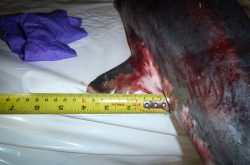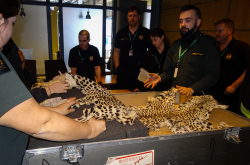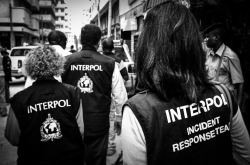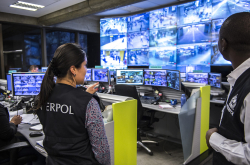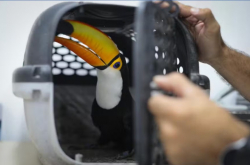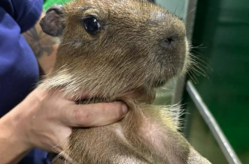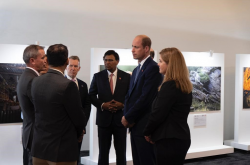PHUKET, Thailand - Thai authorities have captured one of the world’s ‘most wanted’ rogue vessels off the coast of Phuket, in collaboration with INTERPOL.
The “Uthaiwan”, an Illegal, Unreported and Unregulated (IUU) fishing vessel, had been the subject of cooperative investigations for several years, regularly changing its name and flag to elude detection.
It is believed the Uthaiwan is part of a fleet of IUU vessels, loosely called the “Al Wesam” fleet, which is known to operate in Asia and the Horn of Africa.
At the request of Thai authorities, INTERPOL deployed an Investigative Support Team (IST) to Phuket to support national authorities in developing their investigation once the vessel had been apprehended.
INTERPOL experts gave technical guidance on the vessel’s shipborne communication and navigation equipment in order to ensure thorough collection of investigative data.
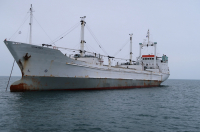
Local seizure, global investigation
With INTERPOL’s General Secretariat playing a coordinating role in fisheries investigations across multiple jurisdictions, ongoing investigations in September had enabled INTERPOL experts to detect the Uthaiwan crossing the Straits of Malacca.
INTERPOL’s Global Fisheries Enforcement (GFiE) team had then immediately alerted INTERPOL’s National Central Bureau (NCB) in Bangkok so that maritime monitoring could proceed and the vessel could be apprehended as soon as it entered Thai waters.
The GFiE team helped Thai authorities monitor the vessel’s course and bearings and devise an interception strategy so that on 13 September the Thai navy could intercept the Uthaiwan at sea and reroute it to Phuket.
INTERPOL worked collaboratively on this operation with OceanMind, a not-for-profit organization that helps law enforcement protect the world’s fisheries. INTERPOL nurtures working partnerships with both for-profit and not-for-profit organizations to share expertise, technology and resources in tackling the challenges faced by law enforcement and society as a whole.
The GFiE team is working hand in hand with INTERPOL member countries to identify the individuals and companies involved in the criminal network associated with this case, with the ultimate objective of stopping them from operating.
Because fisheries crime is invariably linked to fraud, tax evasion, corruption, money laundering, document falsification, drug trafficking and human trafficking, INTERPOL’s GFiE team continues to work with Thai law enforcement on global investigations the vessel’s seizure triggered.
In the weeks prior to the interception, INTERPOL supported the restraint in Bangladesh’s Port of Chattogram of two vessels thought to belong to the associated criminal network. Both vessels had allegedly engaged in forced labour and other associated fishing crimes.
A Regional Investigative and Analytical Case Meeting is being set up to bring together authorities from countries involved in the case to enable them to discuss the evidence, prosecution and continuing investigations.
INTERPOL’s Global Fisheries Enforcement initiative, launched in 2013 under the name Project Scale, supports enforcement agencies in the Organization’s 194 member countries in identifying, deterring and disrupting transnational fisheries crime.




